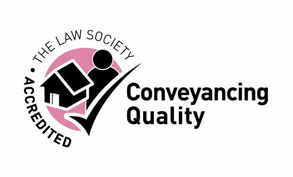Commercial Property

Landlord's Health & Safety Requirements
8 APR 2020
Why do I need to produce an Asbestos Report, Energy Performance Certificate and Fire Risk Assessment before I can grant a new lease of my commercial premises?
There are a number of legal health and safety requirements which landlords and tenants must be aware of prior to entering into a lease and in particular, consideration must be given to the certification that landlords should be providing to its tenants on grant of a new lease.
EPC – Energy Performance Certificate
Providing an EPC is a legal requirement under the Energy Performance of Buildings (England and Wales) Regulations 2012 (the EPC Regulations). A valid EPC must be provided to any prospective tenant at the earliest opportunity. Failure to comply with the EPC Regulations (without a legitimate excuse) could result in a penalty charge at 12.5% of the rateable value of the building, with a minimum penalty of £500 and a maximum penalty of £5,000 enforceable by Trading Standards Officers.
Since April 2018, before letting out any commercial building a landlord must be able to provide an EPC rating of E or above in order to comply with minimum energy efficiency standards.
Asbestos
The responsibility for the management of asbestos in commercial properties belongs to the ‘dutyholder’ under the Control of Asbestos Regulations 2012. The Regulations are wide-ranging and can apply to both landlords and tenants.
The landlord will always be the dutyholder, particularly with multi-let properties when the maintenance of the common parts, external fabric and main structure and services of the building will usually be the responsibility of the landlord. It is the landlord who should arrange for asbestos surveys to be undertaken and provided to the tenants.
Failure to comply with these regulations constitutes a criminal offence and can result in a fine and / or imprisonment.
Fire Safety
The duty to carry out a fire risk assessment falls on the ‘responsible person’ under the Regulatory Reform (Fire Safety) Order 2005. The ‘responsible person’ includes the ‘owner’ who would be the landlord as they would receive the rent under the lease. However, if the tenant sub-lets, the tenant would also be viewed as the ‘owner.’
Gas and Electrical Safety
Please note, there are no statutory obligations for landlords to provide gas and electricity certificates to a tenant before granting a lease of commercial premises.
Under the Gas Safety (Installation and Use) Regulations 1998 (Gas Safety Regulations 1998) landlords must check that anyone carrying out works to gas appliances or flues in their property are registered on the Gas Safe Register. This responsibility can be passed onto the tenant but if the tenant fails to comply with this obligation, the landlord will remain liable. Failure to check whether the person is registered would constitute a breach of the Building Regulations 2000 and the Gas Safety Regulations 1998.
There are a number of statutes which govern electrical maintenance and the combination of these means that the responsibility to inspect and test all electrical equipment relates to employment law and the obligation falls to the employer. Therefore unless the Landlord is also operating a business from the premises as an employer the Landlord will be not be responsible for testing portable appliances. The lease will often contain provisions that the tenant is responsible for complying with all laws in relation to any machinery and/or equipment at the premises, in which case the tenant would have the responsibility for ensuring they are compliant.
At BBP Solicitors we are experts in advising landlords and helping them through the complexities of granting a new lease of commercial premises. If you are a landlord looking to get grant a new lease of your commercial premises, then please contact Ikram Dola.
Share this






